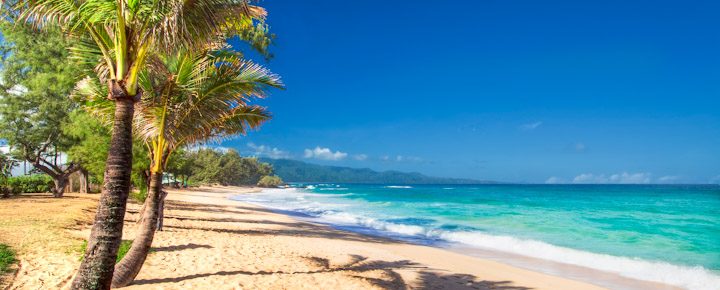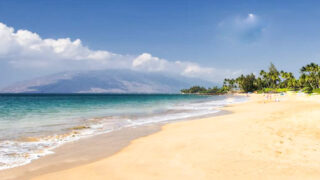This weekend, Barcelona, facing soaring housing costs and other issues, announced plans to abolish short-term vacation rentals by 2028. And similarly, Maui is considering reducing its own vacation rental inventory. We’ll look at both tourist locations today, almost 8,000 miles apart, and how they work through the same issues.
Barcelona Mayor Jaume Collboni said drastic measures are needed to combat rising rents and property prices, making the city more livable for residents. The ban will revoke licenses for more than ten thousand legal vacation rental apartments, converting them to local use. Critics are arguing, among other things, that it may lead to increased illegal vacation rentals and economic downsides starting with their all-important tourism sector that is said to employ some 150,000 people.
This latest initiative is part of broader efforts throughout Spain to manage mass tourism and its impacts on local communities. Does that sound familiar when you think about Hawaii?
In a similar vein, Malaga has also faced challenges with managing vacation rentals amidst growing tourism. As highlighted by our recent Beat of Hawaii article contrasting Europe and Hawaii, cities like Malaga are facing strong push-back against visitors and implementing stricter regulations to balance the benefits of tourism with the need for affordable housing for residents.
Maui’s approach to vacation rentals.
With long-term housing shortages exacerbated by last year’s wildfires, Maui has initiated plans for severe cuts to vacation rentals. Following Hawaii Senate Bill 2919, permitting the counties to take matters into their own hands, the mayor immediately announced plans to eliminate over 7,000 short-term rentals by 2026, prioritizing them for long-term housing for residents. This move claims to address the island’s housing crisis but faces significant challenges, including potential job losses and decreased tax revenue. Critics argue that the measures may not effectively resolve housing issues and could instead severely harm the local economy that is dependent on tourism.
Comparison and insights between Maui and Barcelona.
Both Barcelona and Maui are considering implementing stringent measures to regulate short-term rentals driven by housing affordability and resident needs. And yet, both places have a multitude of issues that aren’t entirely comparable.
Barcelona’s plan is broader and thus far more definitive, aiming for a complete ban, while Maui focuses on significant reductions. Both face criticism regarding economic impacts and the potential rise of illegal rentals. These initiatives highlight the global challenge of balancing tourism with local housing needs and sustainability, setting precedents for other regions grappling with similar issues.
In addition, the Maui County Council is rethinking its approach to its vacation rental ban, first considering a $300,000 study to assess the full impact of these regulations. This pause aims to ensure that the measures taken will effectively address housing issues without causing unintended economic harm to the island. The study will provide a comprehensive understanding of the ramifications, guiding future decisions in balancing sustainable tourism with local housing needs.
The comparison between Barcelona and Maui underscores the worldwide complexities of managing short-term rentals throughout tourist-heavy destinations. As both regions navigate these changes, the outcomes will be closely watched by other locations facing similar dilemmas. The success or failure of these policies could provide lessons in achieving well-thought-out and sustainable tourism and long-term housing solutions.







I feel the solution to affordable housing is not shutting down rentals. As crazy as it seems, the solution is to actually build affordable housing. There are large plots of land just waiting to be built on in Hawaii. What’s the Government doing over there? They seem to want to do everything except build.
I have lived in Maui (Huelo & Napili) and was impacted in a negative way by the short term rentals. Turning residential neighborhoods into “hotels” is not fair to the residences who live there. Many people who buy these properties Can’t afford them without renting. I do believe that even though I am not a fan, there will many lawsuits and it won’t have the intended impact of creating more housing for locals for many years
The article mentioned several times that short term rentals may increase on Maui, if there Is a reduction in the legal ones. Not mentioned is the fact that Maui has already instituted very strict $20,000 per day penalties for illegal short-term rentals.
Finding the illegal ones is not that difficult since almost all of them advertise somewhere on the Internet.
Regulations of this nature tend to get driven underground. People find a way around them, and the enforcement of these kinds of regulations seems to be elusive. Consequently, you end up with STRs with no tax money coming in. Even the Mayor and the Council recognize this unintended consequence.
I feel that the whole idea of “Aloha” is phony. In the 1970s, we were in Hilo, and decided to leave. The hatred among the various cultural groups was palpable. Japanese Hawaiians and Filipino Hawaiians and Hawaiian Hawaiians all talked smack about each other. And they yelled out to us from passing trucks, as “haoles.” It was just plain ugly. When we came back to visit Maui years later, it seemed to have calmed down. Yet, maybe not. I think this anti-tourism thing will flow back into where it was before, and reveal the cultural schisms that must still be there.
I get the concern about the effect that the “ban”, which isn’t a “ban”, it’s a reduction in the number of STVRs, could have on the economy of Maui. But everyone that I see posting here is making the assumption that when 7K STVRs get shut down, that All of those people who would have used them simply don’t come to Maui at all, ever. I doubt that’s the case. I think it’s going to be more complex than that and an unbiased study might be just the thing to see what the impact might actually be.
Does Barcelona have a high percentage of non-owner occupied and non-resident investment owners?
First off, Barcelona/Spain is not 90% dependent on tourism. Every person and business on Maui benefits in one way or another from tourism as does the island and state. This articles may make the mayor feel like his plans to ban STRs is acceptable but there are more differences than similarities to our needs and the effects. There are other jobs/commerce in Spain. Our people will have to leave for jobs.